Spring 2023 Humanities Forum
The Humanities Forum is an opportunity for members of the Providence College community to engage regularly in intellectual life outside class, deepen their appreciation for the humanities, and explore diverse perspectives from on and off campus. All are welcome.
If you do not have a Providence College email address, you may request to receive our regular email announcements by sending an email to marcom@providence.edu.
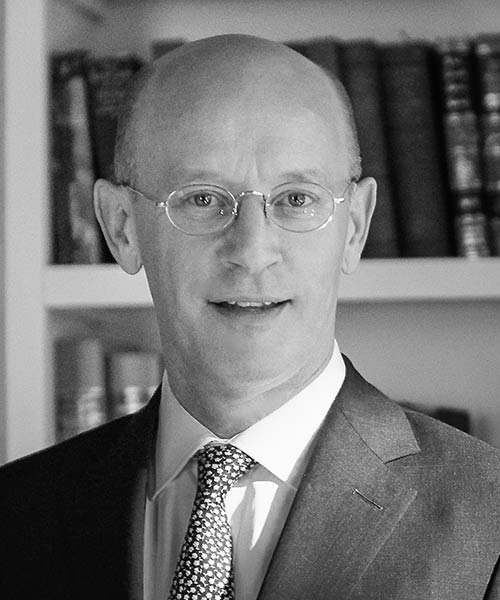
In collaboration with the C.S. Lewis Fellowship
The Heavens are Telling the Glory of God: C.S. Lewis, Narnia, and Medieval Cosmology
Michael Ward
Faculty of Theology and Religion
University of Oxford
Wednesday, January 25 at 3:30 p.m.
Ruane Center for the Humanities 105
C.S. Lewis said his well-known Chronicles of Narnia were “about Christ.” But how so? Far from being simple allegories, the Chronicles are carefully constructed out of the imagery of the seven planets of the medieval cosmos, which Lewis described as “spiritual symbols of permanent value.”
Michael Ward is a member of the Faculty of Theology and Religion at the University of Oxford and professor of apologetics at Houston Christian University. A leading expert on C.S. Lewis, his books include After Humanity: A Guide to C.S. Lewis’s The Abolition of Man and Planet Narnia: The Seven Heavens in the Imagination of C.S. Lewis. He is a priest of the Ordinariate of Our Lady of Walsingham.
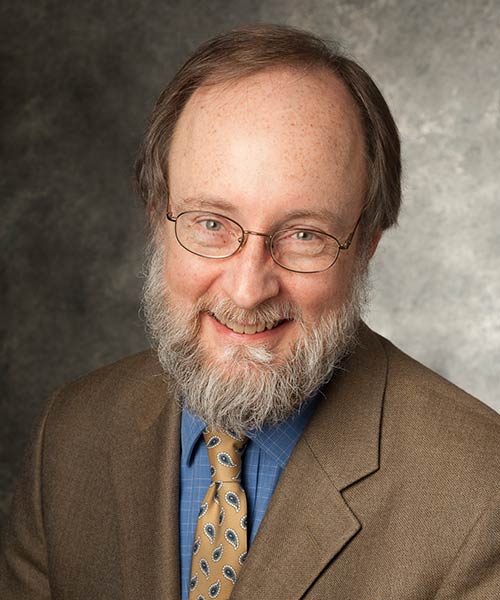
St. Thomas Aquinas Lecture
From His Fullness We Have All Received: Aquinas on What Jesus Knows
Bruce Marshall
Lehman Professor of Christian Doctrine
Southern Methodist University Perkins School of Theology
Friday, January 27 at 3 p.m.
Ruane Center for the Humanities 105
Catholic theology and biblical studies often hold that Jesus, at least in his earthly life, could not know more than any other human being of his time and place. On the contrary, and for important reasons, Jesus enjoys the face-to-face vision of God even in his earthly life.
Bruce D. Marshall is Lehman Professor of Christian Doctrine in the Perkins School of theology at Southern Methodist University, where he has taught since 2001. He is the author of Trinity and Truth (2000) and Christology in Conflict (1987), and is presently completing a book entitled The Primacy of Christ: Faith, Reason, and the Cross. For the 2018-19 academic year he served as Rev. Robert. J. Randall Distinguished Professor in Christian Culture at Providence College and is a past president of the Academy of Catholic Theology.
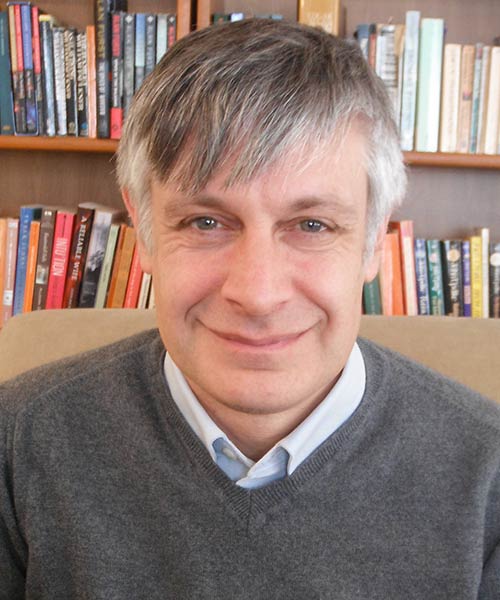
In collaboration with “Conversations for Change” and The Frederick Douglass Project
What Should We Do? A Theory of Civic Life
Peter Levine
Lincoln Filene Professor of Citizenship & Public Affairs
Tufts University, Jonathan Tisch College of Civic Life
Tuesday, January 31 at 4 p.m.
Ruane Center for the Humanities 105
People who want to improve the world must ask the fundamental civic question: “What should we do?” Although the specific issues and challenges they face are enormously diverse, they often encounter problems of collective action (how to get many individuals to act in concert), of discourse (how to talk and think productively about contentious matters), and of exclusion. Peter Levine analyzes these general challenges and explores solutions.
Peter Levine is the associate dean of academic affairs and Lincoln Filene Professor of Citizenship & Public Affairs at Tufts University’s Jonathan Tisch College of Civic Life. Trained as a moral and political philosopher, Levine has spent most of his career conducting applied research and organizing professional efforts related to civic life in the United States, including sustained work on civic education, voting rights, public deliberation, and social movements. Levine is the author of eight books, including most recently We Are the Ones We Have Been Waiting For: The Promise of Civic Renewal in America (Oxford University Press, 2013) and What Should We Do? A Theory of Civic Life (Oxford University Press, 2022).
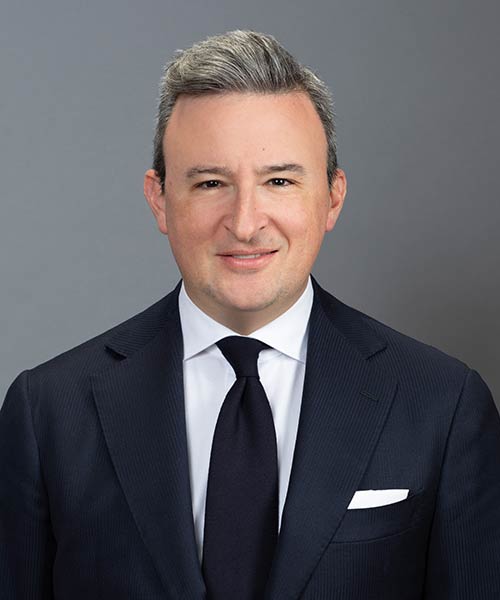
In collaboration with The Frederick Douglass Project
Philo and the Early-Modern Rehabilitation of “Democracy”
Eric Nelson
Robert M. Beren Professor of Government
Harvard University
Friday, February 10 at 3 p.m.
Ruane Center of the Humanities 105
Eric Nelson is the Robert M. Beren Professor of Government at Harvard University. His research focuses on the history of political thought in early-modern Europe and America, and on the implications of that history for debates in contemporary political theory. Particular interests include the history of republican political theory, the relationship between the history of political thought and the history of scholarship, theories of property, and the phenomenon of secularization.
The history of the concept of “democracy” presents two well-known puzzles. First, how did a word that was uniformly used as a pejorative throughout the ancient, medieval, and early-modern history of the West reemerge in the modern period as the name of the only legitimate constitution? And second, how did a form of government once characterized by universal citizen debate and suffrage and the selection of magistrates by lot come to be associated instead with the rule of officers chosen by means of mass suffrage elections? Nelson will argue that the solution to these twin puzzles is to be found in the early-modern reception of the writings of Philo of Alexandria.
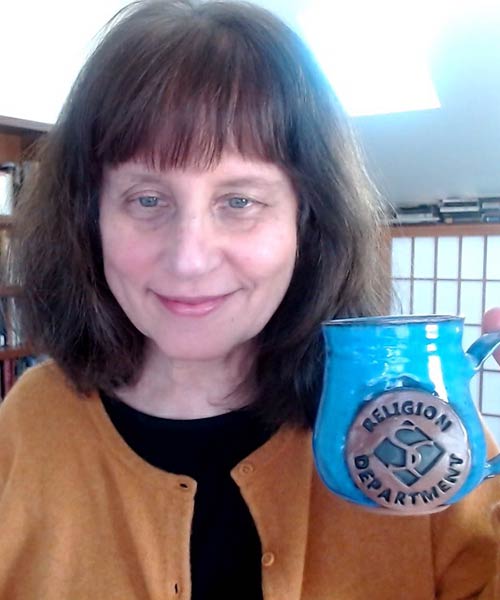
In collaboration with the C.S. Lewis Fellowship
C. S. Lewis’s Divine Comedy: The Landscape of the Afterlife and the Substance of Christian Hope
Carol Zaleski
Professor of world religions
Smith College
Friday, February 17 at 3 p.m.
Ruane Center for the Humanities 105
In the extraordinary course of his life as a literary historian, fantasy fiction writer, philosopher, poet, social satirist, memoirist, and apologist, C. S. Lewis introduced multitudes to the mysteries and rational architecture of Christian faith, including in a special way Christian eschatology. Though averse to idle curiosity about the afterlife, Lewis created a Divine Comedy of his own, illuminating our fading picture of heaven, hell, purgatory, and end times, and providing sound reasons for the renewal of Christian hope.
Carol Zaleski is professor of world religions at Smith College. She earned her B.A. from Wesleyan University and her M.A. and Ph.D. in the study of religion from Harvard University. She has been teaching philosophy of religion, world religions and Christian thought at Smith since 1989 and was appointed to the chair in world religions in 2006. Zaleski is the author or co-author of several books and has contributed to periodicals including The New York Times, First Things, America, The Journal of Religion, and The Journal of the History of Ideas. Her major project at present is a book on belief and doubt, with regard to the big questions: God, freedom, and immortality.

In collaboration with The Frederick Douglass Project
The Intellectual Origins of American Slavery
John Harpham
Collegiate assistant professor in the social sciences
University of Chicago
Friday, February 24 at 3:30 p.m.
Ruane Center for the Humanities 105
What were the origins of American slavery? From the time of the constitution to the present, the attempt to answer this question has been an urgent concern for observers of the national past. Some have stressed the role of material economic interests. Others have held that the origins of slavery are to be found in the earlier development of race and racism. In his new book, John Samuel Harpham casts doubt on both of these accounts on the basis of a wealth of original research. The Intellectual Origins of American Slavery aims to provide a new standard account. In so doing, it focuses attention on what is perhaps the most troubling question to be asked about the origins of American slavery: how did what we now consider perhaps the most terrible wrong in the history of the nation first come to be seen as right?
John Samuel Harpham is a junior fellow in the Harper-Schmidt Society of Fellows at the University of Chicago. The Intellectual Origins of American Slavery is forthcoming from Harvard University Press.
Members of the Providence College community can view Dr. Harpham’s talk at: https://web.microsoftstream.com/video/03c7a914-45bb-48b3-ae2c-9564f2470445.
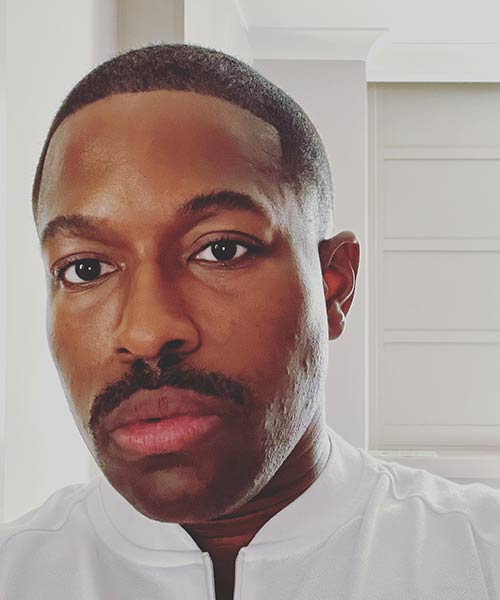
Cervantes, Golden Age Spain, and the 21st Century
Nicholas Jones
Assistant professor of Spanish and Portuguese
Yale University
Friday, March 17 at 3 p.m.
Ruane Center for the Humanities 105
Building on previously published public engagement work from a co-authored op-ed with Chad Leahy that went viral titled “Cervantes y la materia de las vidas negras” (“Cervantes and the Matter of Black Lives”), this presentation focuses on Miguel de Cervantes’s literary archive of Blackness and argues for a more nuanced critical reckoning with the cultural, historical, and literary legacies of antiblackness within the Iberian Peninsula and the global reaches of its empire.
Nicholas R. Jones is the former King Juan Carlos I of Spain Center’s scholar-in-residence at New York University (2021-2022). He is the author of the award-winning Staging Habla de Negros: Radical Performances of the African Diaspora in Early Modern Spain (Penn State University Press, May 2019) and co-editor of Early Modern Black Diaspora Studies: A Critical Anthology (Palgrave, December 2018) and Pornographic Sensibilities: Imagining Sex and the Visceral in Premodern and Early Modern Spanish Cultural Production (Routledge, January 2021) with Chad Leahy. Jones also co-edits The Routledge Critical Junctures in Global Early Modernities book series with Derrick Higginbotham.
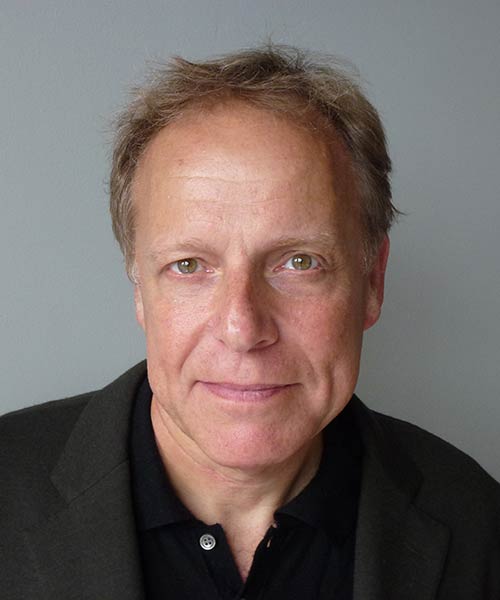
Shakespeare in a Divided America
James Shapiro
Larry Miller Professor of English and Comparative Literature
Columbia University
Friday, March 24 at 3 p.m.
Ruane Center for the Humanities 105
No chapter in the history of Shakespeare in America proved more consequential than the one in which the Shakespearean actor, John Wilkes Booth, shot to death Abraham Lincoln, who was as devoted to Shakespeare as his assassin was, and as president regularly attended performances of the plays and recited Shakespeare to anyone who would listen. At the heart of their fatal encounter — and its aftermath — was the darkest of Shakespeare’s tragedies: Macbeth.
James Shapiro is professor of English at Columbia University, where he has taught since 1985. His books include 1599: A Year in the Life of William Shakespeare (2005) which won the Samuel Johnson Prize, Contested Will (2010), The Year of Lear (2015) winner of the James Tait Black Prize for Biography, and most recently Shakespeare in a Divided America (2020), selected one of the ten best books of the year by the New York Times. He has been awarded Guggenheim, Cullman, and NEH fellowships, and in 2011 was inducted into the American Academy of Arts and Sciences. He is currently serving as one of the judges for the Booker Prize.
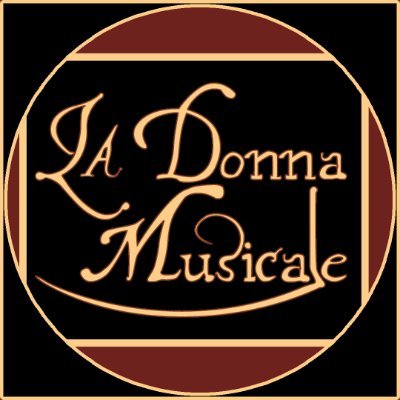
The Spirit Transformed: Women and 17th Century Sacred Song
La Donna Musicale
Friday, March 31 at 4 p.m.
Ryan Concert Hall, Smith Center for the Arts
This concert features 17th-century French-language sacred songs composed primarily for women by Catholic priests as part of the Catholic Reform, begun during the sixteenth century in response to the Protestant Reformation. Initially, sacred songs were used primarily to teach women of all classes about the fundamentals of Catholicism as a means to prevent the spread of Protestantism and to facilitate a deeper spiritual experience. They could also be sung during recreational hours or used for private devotion in domestic settings, salons, classrooms, or private chapels. Sacred songs were composed in popular song forms, either tunes already in circulation with secular texts replaced by religious lyrics or newly composed songs by notable composers like Bertrand de Bacilly, Michel Lambert, and André Campra. This beautiful repertory, never heard in performance before, features songs for one, two, and three voices accompanied by basso continuo, violin, and flute.
Combining stirring performances with groundbreaking scholarship, award-winning ensemble La Donna Musicale, led by Brandeis University Women’s Studies Research Center resident scholar, Laury Gutiérrez, brings to life music by female composers nearly forgotten by history, vibrant works that have either been long overlooked or only recently discovered.
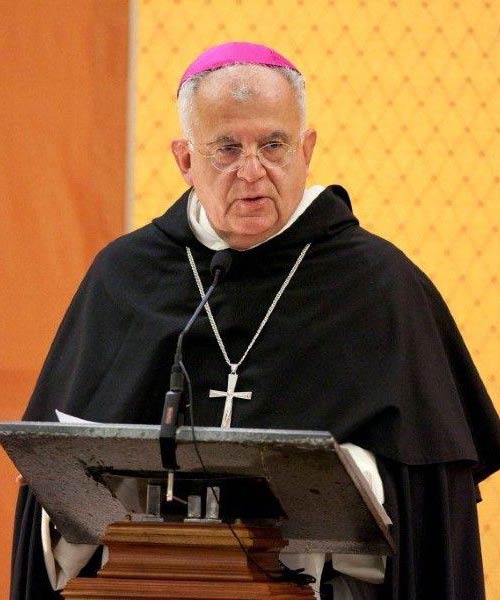
Ex Corde Ecclesiae Lecture
A Cry from the Heart of the Church: Ex Corde Ecclesiae in a Time of Social and Cultural Crisis
Archbishop Joseph Augustine Di Noia
Adjunct Secretary of the Congregation for the Doctrine of the Faith
Due to unforeseen circumstances, this event has been postponed.
Originally scheduled for Friday, April 14 at 3 p.m.
Ruane Center for the Humanities 105
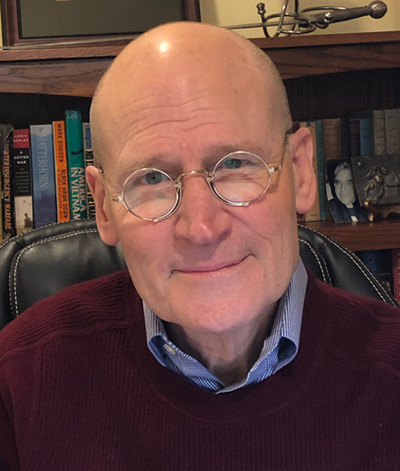
The John F. Fay ’68 Keynote Address of the 2023 Veritas Conference
What We Need Now
Francis X. Maier
Senior fellow in Catholic Studies at the Ethics and Public Policy Center
Friday, April 21 at 3 p.m.
Ruane Center for the Humanities 105
We live in a time of significant discord in both the nation and the Church. The temptation to frustration and unease is high. Our task is recovering the presence of Jesus Christ — and his words, “my peace I give unto you” (John 14:27) — at the heart of our daily lives: i.e., in our personal discipleship; in the life of the Church; and in the affairs of our wider culture. The key question is: How do we do that?
Francis X. Maier is a senior fellow in Catholic Studies at the Ethics and Public Policy Center. His work focuses on the intersection of Christian faith, culture, and public life, with special attention to lay formation and action.
Maier served as senior adviser and special assistant to Archbishop Charles J. Chaput, O.F.M. Cap., for 23 years in Denver and Philadelphia. He previously served as editor in chief of the National Catholic Register newsweekly and as a story analyst and screenwriter in Los Angeles. A graduate of the University of Notre Dame and New York University’s School of the Arts, he is a former fellow of the American Film Institute’s Conservatory for Advanced Film Studies. He is a cofounding board member of the University of Pennsylvania’s Collegium Institute for Catholic Thought and Culture and a board member of the Napa Institute.
His bylined work has appeared in the Wall Street Journal, First Things, National Review, The American Spectator, Crisis, This World, America, The Catholic Thing, Commonweal, the New York Times Sunday magazine, Christian Science Monitor, France Catholique, and other national and foreign outlets.

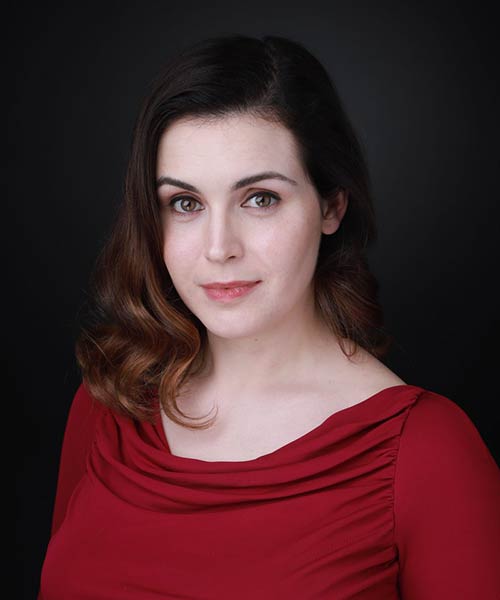
In collaboration with Disputatio
Has the Sexual Revolution Failed? A Disputation
Elizabeth Nolan Brown
Senior editor, Reason
Louise Perry
Writer and campaigner
Tuesday, April 25 at 3 p.m.
Ruane Center for the Humanities 105
In this disputation, Elizabeth Nolan Brown and Louise Perry will debate the following question: “After more than 50 years, should we conclude that the sexual revolution has failed and that it has made life worse for most women (and men)?” Perry will take the “yea” position and Brown will take the “nay” position. Audience memberes will have the opportunity to present their own questions to the speakers.
Elizabeth Nolan Brown is a senior editor at Reason. She is co-founder of the libertarian feminist group Feminists for Liberty and a professional affiliate of the journalism program at the University of Cincinnati.
Louise Perry is a writer and campaigner based in London. She is director of The Other Half, a non-partisan feminist think tank, and her debut book, The Case Against the Sexual Revolution: A New Guide to Sex in the 21st Century, is published by Polity.





